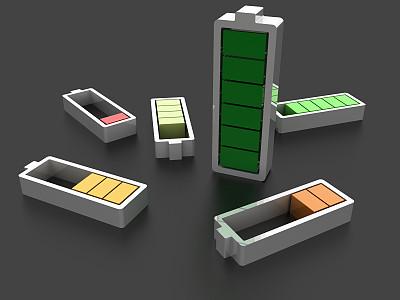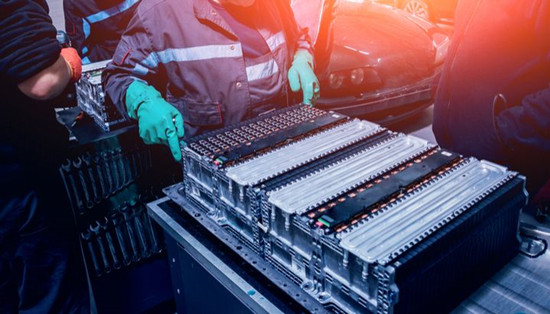What Are Spare Lithium Batteries?
Aug 05, 2019 Pageview:1537
Lithium batteries are regarded as spare lithium batteries while they are stowed externally to the PED. This is usually when they are placed in a protective package. The protective package could be in the original packing, heavy-duty plastic bag with insulated terminals, and so on.
This string of compliance is in line with lithium battery manufacturers and user technical precautions.
Introduction Of Spare Lithium-Ion Battery
Lithium-ion batteries are primary battery types that use metallic lithium as an anode. They are also well known as lithium-ion batteries. Due to their high charge density and cost, these batteries are well known for its quality and durability. These battery types are the most used type of batteries in portable electronic devices, electric cars, and other types of applicable devices.
However, Spare lithium batteries are the uninstalled type of lithium batteries. Spare batteries could also be any other types of batteries that have been uninstalled from their initial connection. These spare lithium batteries can cause a fire if not handled carefully. All the spare lithium batteries are capable of causing damages in their uninstalled state. These batteries can be safely carried in a piece of baggage only if they are adequately insulated against short-circuiting.
Lithium batteries are considered as spares when they are stowed externally to the portable electronic device in protective packaging. The protective packaging can be original in plastic bags or smart baggage. It could also be a bag with terminal insulator by adhesive electrical tape for the proper insulation from short-circuiting the terminals.
Preparing spare lithium-ion batteries for traveling requires numerous preparations. Some of which include:
· Packaging them in their original packaging retail container
· Gently tapping over the lithium battery terminals
· Distinguishingly place the batteries in an individual and separate plastic bag or protective baggage
· Isolating the packaged batteries from coming in contact with any type of electronic devices. This could reactivate the battery.
It is also very important to note that these spare lithium batteries traveling depend greatly on its configuration and the specified watt-hour power rating. It is also dependent on the lithium content contained in the lithium batteries. For the safety of the journey and the people that are going to be on the same journey, it is important that the packaging and proper storage of these lithium batteries is done properly.
Importantly, when on this type of travel, a maximum of 20 spare batteries in total is the bar set for traveling with spare batteries. For personal use, this figure is the maximum permitted per flying passenger. However, other restrictions still come to play. Some of these restrictions include
· Not more than two spare lithium batteries with a rating exceeding 100Wh and 160Wh is allowed and formed the total being carried.
· A combination of other lithium batteries can be carried but limited to 20 in total.
· All spare lithium batteries must be separately bagged and carried.
Risk Of Spare Lithium-Ion Battery
Due to their distinguishing characteristics, the spare lithium-ion batteries pose some certain level of risk to travelers during air transportation. The cells within all the known lithium batteries are very reactive and are capable of igniting itself. It is capable of entering a thermal runaway state. The continuous advancement in the use and application of lithium batteries have shown that it needs special attention.
With recent trends and data from aircraft incidences, there has been a continuous reflection of how the advancement in the evolution of these batteries could pose as a risk. This is one of the main reason whyspecial professionals and other concerned stakeholders must update their knowledge and skill to control and manage these risk in case they arise.
There have been numerous upgrades to the rules and regulation posed to aircraft agencies to mitigate the common risks that could arise. This is aimed to increase the already set awareness of the safety of cabin crews. There have been numerous international rules revision and guidance for best management and mitigation of these risks.
There are also cases of thermal runaway by these lithium-ion batteries and can be cooled by water or non-alcoholic liquids in large quantities. The significant amount of air vapor from this device can cause membrane irritant in the confined space. It is also highly flammable.
Precautions Of Spare Lithium-Ion Battery
Chiefly among the known precautions taken for spare lithium-ion batteries is the appropriate education and set rules to mitigate any type of risk. It is very important that the knowledge is kept updated for the advancement of these lithium batteries and other portable electronic devices (PEDs) in general.
Other best practices and guidance include:
· Smart luggage
This is also called smart bags that are widely used for packaging these spare lithium batteries separately. This is important to keep these batteries from being short-circuited. It is also important to separately carry these spare lithium batteries in separate smart luggage.
· Tracker
This is also one of the best practices to ensure the maximum risk of free travel. At all times, it is very important to know the location of these spare lithium batteries for the safety and security of those on the flight.
· Insulation
It is very important that these spare lithium-ion batteries are kept in an insulated state. Due to their very reactive cells, contact with other portable devices could reactivate its cells. Hence, they must be kept in an insulated state.
· Maximum allowed per individuals
For best practices, it has been pegged to 20 spares. This is also specific for certain power ratings. It is important to follow the rules of what can and cannot be carried.
· Lithium battery purchase
There have been different types of lithium batteries saturating the market. Some of which are in an unstable state and unfit to travel. When purchasing your lithium batteries, it is important that they are purchased from reputable sources.
· Portable electronic devices
Only allowed portable electronic devices allowed should be carried with lithium batteries installed in the smart baggage.
Wrapping It Up
While flying, it is very important to comply with the set rules and regulations of the airline companies. This is well put together rules and regulations to help mitigate the risks and dangers associated with spare lithium-ion batteries. Due to the advancement of these cells, these rules are constantly being updated.
- Prev Article: About 14500 Battery Vs 18650 Battery
- Next Article: How to fix 18650 battery wrap
Leave Message
Hottest Categories
-
Hottest Industry News
-
Latest Industry News











